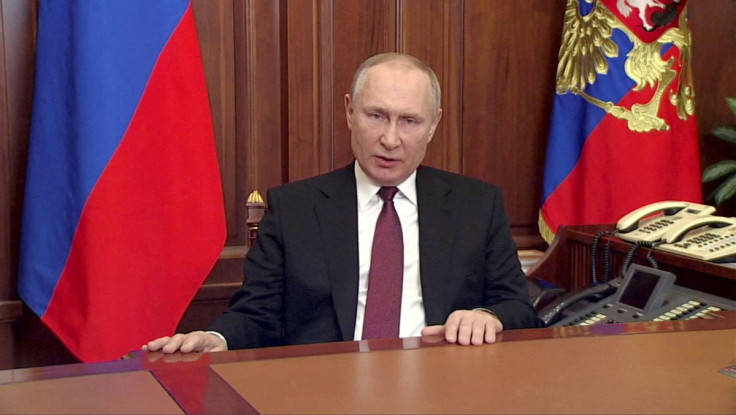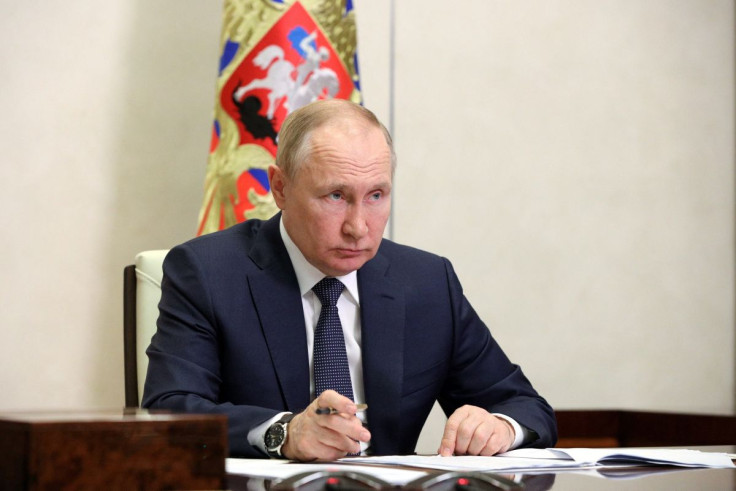Russians Google 'How To Leave Russia' While Waiting For Putin's Surprise National Address

KEY POINTS
- Most of the searches were done by residents of Khabarovsk territory that borders China
- The peak of Google searches occurred at 6 p.m. local time
- The Russian State Duma has introduced concepts of mobilization and wartime
Google searches for "How to leave Russia" witnessed a spike Tuesday as Russians anticipated a surprise speech by President Vladimir Putin, according to a report.
The number of searches for information on leaving Russia peaked around 6 p.m. local time. Apart from searches for "How to leave Russia," searches for deferring from the Russian army also peaked around the same time, Google Trends data showed, as reported on the Telegram channel of Mozhem obiasnit (We can explain).
"The Google search index for the phrase "How to leave Russia" peaked on Tuesday. This happened against the backdrop of news about the upcoming mobilization and referendums in the unrecognized republics. The peak of requests came at 18:00, according to Google Trends data," the report read.
The Telegram channel also noted that most of the searches were made by Russians living in the Khabarovsk territory on the country's southeastern front. Khabarovsk is a city that borders China.
The peak of Google searches came shortly after it was announced that Putin and Sergei Shoigu, Minister of Defense of the Russian Federation, were expected to make a surprise national address Tuesday. However, the speech was later rescheduled for Wednesday.
It was not specified what they would discuss during the address, but the announcement comes amid rumors about forthcoming mobilization plans and referendums in occupied territories in Ukraine.
Earlier that day, the Russian State Duma introduced the concepts of mobilization and wartime in the Criminal Code of the Russian Federation, which was adopted in the first reading in July. The new concepts now strengthen criminal responsibility for disobeying a military order, desertion, evasion of duty and loss of military property if they are committed "during martial law, in wartime or in conditions of armed conflict or hostilities," Holod magazine reported.
In addition to the concepts, the State Duma also introduced criminal liability for voluntary surrender and looting. Russian soldiers who voluntarily surrender to enemy troops will face between 3 to 10 years in prison. Looters can be sentenced to up to 15 years in jail.
The new concepts would apply to current Russian military personnel, reservists, contract soldiers and conscripts.

© Copyright IBTimes 2025. All rights reserved.






















